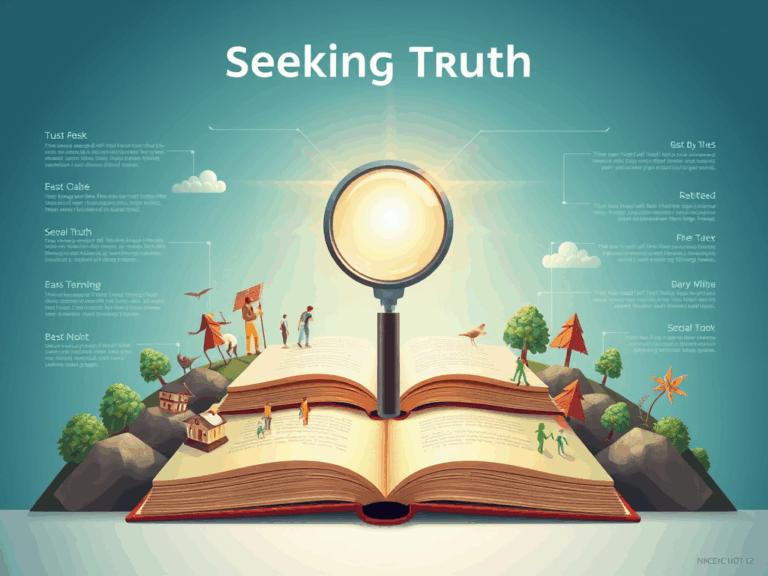Does the biological Theory of Evolution explain our world? —NO (sort of)
[EDITOR’S NOTE: This post is part of our series on controversial questions. A NO post will normally follow a YES post. Join in by posting your comments.]
by Elgin Hushbeck, Jr.
 One of the longest running battles between science and religion is over the theory of evolution, a battle which started as soon as the theory was published. There is a lot to criticism on both sides and I will not be going into this long, complex and sordid history. Here I will simply address the question of whether or not the biological theory of evolution can explain our world. But even here there are many problems. Just what do we mean by “explain our world?” For simplicity sake I will take this to mean, as the title of Darwin’s founding work put it, the Origin of Species. Biological evolution says nothing about how life got here in the first place, and scientifically that still remains a conundrum that has only gotten vastly more difficult the better our understanding has become.
One of the longest running battles between science and religion is over the theory of evolution, a battle which started as soon as the theory was published. There is a lot to criticism on both sides and I will not be going into this long, complex and sordid history. Here I will simply address the question of whether or not the biological theory of evolution can explain our world. But even here there are many problems. Just what do we mean by “explain our world?” For simplicity sake I will take this to mean, as the title of Darwin’s founding work put it, the Origin of Species. Biological evolution says nothing about how life got here in the first place, and scientifically that still remains a conundrum that has only gotten vastly more difficult the better our understanding has become.
But if we set aside this question for the moment and restrict ourselves to what happened after life got started, does evolution at least explain the diversity of species we see all around us? To answer that question, we first must deal with the fundamental problem of just what actually is this theory? This is a fundamental problem because there is no easy answer to this question.
At times there seem to be as many answers as there are people pushing one side or the other. A common and somewhat neutral definition is that evolution is, in a very general sense, that life started in simple forms and then over time evolved into more complex forms finally resulting in human beings. Ok, but this is more descriptive than an actual scientific theory.
This would probably be a good time to point out that I have no theological problems with evolution, unless it is defined, as some atheist I have heard define it, as a process that excludes God from creation. In simple terms, my view is that God created the universe, and that Genesis’ description is vague enough that it can be made to fit or conflict, depending on the desire of the interpreter, any number of theories. Frankly, I think this debate often overshadows the main message of Genesis, which is that God created the universe, and to put into perspective where we fit in the scheme of things.
The key problem with the theory of evolution given earlier is that it is not an explanation. It at best states what happened but not why it happened. Darwin’s theory suggested two additional factors to allow evolution to be an explanation. The first is that the small changes that normally occur in each generation would be selected by natural circumstances, i.e., those best adapted to survival would do so and produce offspring and thus over time those traits would become dominant. Second, these changes would accumulate until the changes were significant enough (from whatever arbitrary starting point you picked) to produce a new species.
Even the most committed creationist would accept the first of these, though there is often some dispute about where the boundaries are. But since I am limited in space, I will just take this as a given. Where I, and many others, start to have problems is with the second factor, i.e., that these changes are cumulative to the point of creating something significantly different than what was started with. The evidence, in fact is quite to the contrary, and herein is the rub.
Virtually all the “evidence for evolution” is from the first category that even literal creationists accept. The problem comes in when evidence for the first factor is just assumed to apply to the second. Those critical of evolution often distinguish between these two factors as micro-evolution in the first case, and macro-evolution in the second, accepting the first and rejecting the later, whereas supporters assume they are all the same, and that evidence of micro automatically applies to macro.
To illustrate these two factors, consider the breeding of dogs. People have been able to breed all sorts of dogs (micro-evolution) but the more they try to refine traits, the more secondary problems are introduced. It is as if you can selectively breed only so far at which point the animal becomes unstable. In short, micro-evolution does not automatically lead to macro-evolution.
Another problem with natural selection is that Darwin postulated that these small changes would take a long time to accumulate and thus be seen in the fossil record. The problem is that the fossil record does not show any such slow progression. On this Darwin was clearly wrong. Rather, the fossil records show that there are very long periods of stability marked by geologically brief periods of change. This has led to a competing theory called punctuated equilibrium. Punctuated equilibrium has a much better correspondence with the fossil record but again this is just descriptive. It lacks a mechanism that would explain why there were such long periods of stability and short periods of change.
There is a further problem in the theory of evolution presented by a characteristic of the fossil record called Cambrian Explosion. Again, evolution postulates that lifeforms developed in a progression over a very long period of time, and yet the fossil records show that there was very simple life and then in a geologically very short period of time the Cambrian period began, which basically had all the various forms of life without any progression.
So we are left with neither theory really providing a good explanation. Darwin’s theory is great at explaining why we have, for example, so many types of dogs, or perhaps even canines, but not why we have dogs and cats. Punctuated equilibrium describes the fossil record but does not explain why it is this way.
This is not to say that there are not a lot of possibilities. But this is yet another problem I have. The history of science is full of nice sounding ideas that once tested turned out to be completely wrong. Evolutionary theory is full of ideas that have not, and in some cases, cannot be tested. Whatever these may be, they are not science, and certainly not a fact, as defenders of evolution have written into law. In some cases defenses of evolution have become virtual tautologies: arguments that are always true, but tell you nothing about the real world.
So in short, I do not believe any of the various theories of evolution provide any real explanation. Thus when it comes to how, in a very real sense, I am agnostic on the question, except in the belief that God is ultimately responsible. How he did it, in my mind, remains to be determined.





